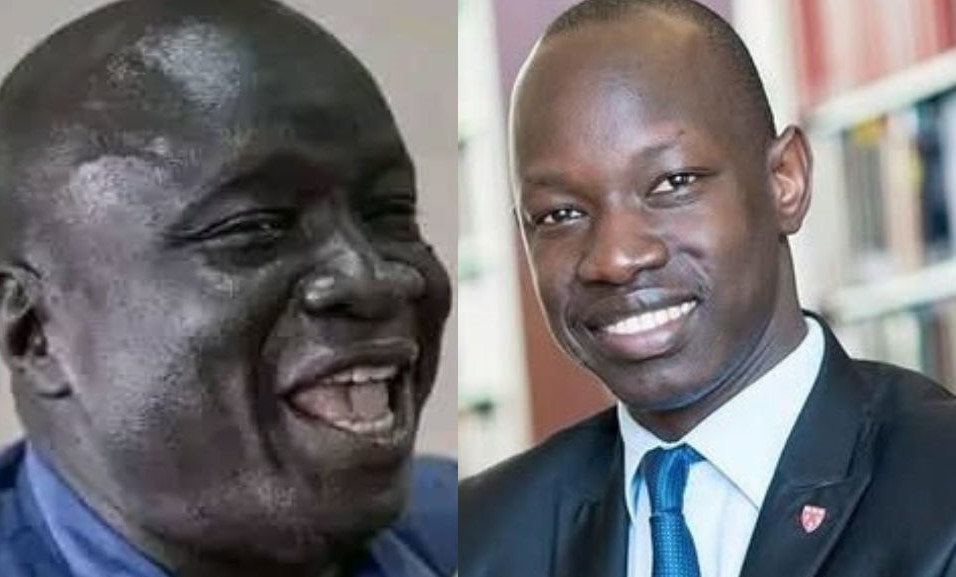The criminal trial of South Sudan’s suspended First Vice President Riek Machar began Monday with the opposition leader appearing inside a defendant’s cage alongside seven co-accused. It was his first public appearance since being placed under house arrest in March.
Before the proceedings could start, Machar’s defense lawyers questioned the jurisdiction, competence and composition of the special court established to try him and seven others. The charges, including murder and treason, relate to their alleged roles in violence in Nasir in March.
The defense team formally challenged the court’s legitimacy, arguing it lacks jurisdiction and violates the country’s constitution and a 2018 peace agreement.
Lead defense lawyer Dr. Geri Raimondo Legge filed a preliminary objection at the Special Court in Juba, contending the trial cannot proceed on two primary grounds: the legal immunity granted to Machar as first vice president and the exclusive legal framework for prosecutions outlined in the 2018 Revitalized Peace Agreement.
The case, Criminal Case No. 1533 of 2025, stems from the so-called “Nasir Incident” and involves charges under various sections of South Sudan’s Penal Code and the Anti-Money Laundering and Counterterrorism Act.
In his submission, Legge argued that Machar’s position is protected by Articles 103 and 104 of the South Sudanese Transitional Constitution. He said a vice president can only be prosecuted after being removed from office through an impeachment process, which requires a two-thirds majority vote in the National Legislature.
“His Excellency Dr. Riek Machar Teny Dhurgon, the first vice president of the republic, should not be tried by this incompetent court which lacks jurisdiction,” Legge told the court.
Legge further asserted the special court was unconstitutionally established by Supreme Court President Justice Benjamin Baak Deng. He claimed the chief justice’s powers to form special courts are limited under national law to cases involving juvenile offenders.
The defense’s second argument centers on the 2018 Revitalized Agreement on the Resolution of the Conflict in the Republic of South Sudan (R-ARCSS). Legge stated the peace accord, incorporated into the national constitution via a 2020 amendment, holds supremacy over other national laws.
He pointed to Article 5 of the peace agreement, which mandates the African Union Commission establish a Hybrid Court for South Sudan to prosecute serious international and national crimes committed during the conflict.
“The Hybrid Court for South Sudan constitutes the sole judicial forum visited with jurisdiction under the revitalized agreement to entertain allegations of violation of international law and other grave breaches,” Legge argued.
He contended that because Machar and his co-accused hold positions created by the peace agreement, any serious charges against them must be handled by this hybrid court, which has yet to be established. Prosecuting them in a national special court, he said, is a “fundamental infringement” of the peace deal.
“Any criminal proceeding instituted against His Excellency… outside the framework of the revitalized agreement… is unconstitutional, it is illegal, it is unlawful and therefore it is null and void ab initio (from the outset),” Legge stated.
Legge also challenged the presence of private defense lawyers as members of the prosecution team.
The defense asked the court to rule on its jurisdiction before any trial on the merits begins. It also asked the court to dismiss the case, arguing that the proceedings are a “wasting of resources and time” and a “nullity.”
In response, the prosecution argued the specially convened court has jurisdiction to try Machar, dismissing defense claims that the court is illegitimate and that Machar is immune.
Prosecution lawyer Ajo Ohisa argued there is no conflict between the 2018 peace agreement and national laws that establish the special court. He grounded the court’s legitimacy in the constitution and the Judiciary Act of 2008, citing a Sept. 1, 2025, order by the chief justice to constitute the court.
A key defense argument is that Article 126(g) of the constitution grants exclusive criminal jurisdiction over vice presidents to the Supreme Court. Ohisa called this “weak and lacking substance.”
“The members of this Special Court are all justices of the Supreme Court and are therefore inherently competent to hear this matter,” Ohisa asserted.
The prosecution also drew a distinction between the constitutional office of “the president” and Machar’s office of “first vice president,” created by the peace agreement. Ohisa noted that when the constitution was amended, Article 126(g) was not updated to include “first vice president.”
“The fact that a similar amendment was not made to Article 126(g) indicates it was not intended to cover the first vice president, thus affirming this court’s jurisdiction,” he argued.
Ohisa also rejected the immunity claim, stating constitutional immunity under Article 103 is explicitly granted only to the president, not members of the broader “Presidency.”
“Immunity is a statutory creation, not an absolute privilege,” Ohisa said.
Senior prosecutor Filberto Manyuat then addressed the defense’s push for the case to be handled by the African Union Hybrid Court. He argued that waiting for an international court “amounts to an advocacy for impunity.”
“South Sudan is a sovereign nation with a functional government responsible for providing security and justice to its people,” Manyuat said. He contended the Hybrid Court’s mandate is for international crimes, while the charges against Machar are for violations of national law.
In concluding, Ohisa urged the court to dismiss the defense’s objections as “misconceived, misleading and contrary to the statutory and constitutional mandate of this court.”
The court ordered the prosecution to submit a full written version of its arguments by Tuesday morning, after which the defense will respond. The case is being closely watched as a test of South Sudan’s ability to adjudicate high-level alleged crimes within its own judicial system.




